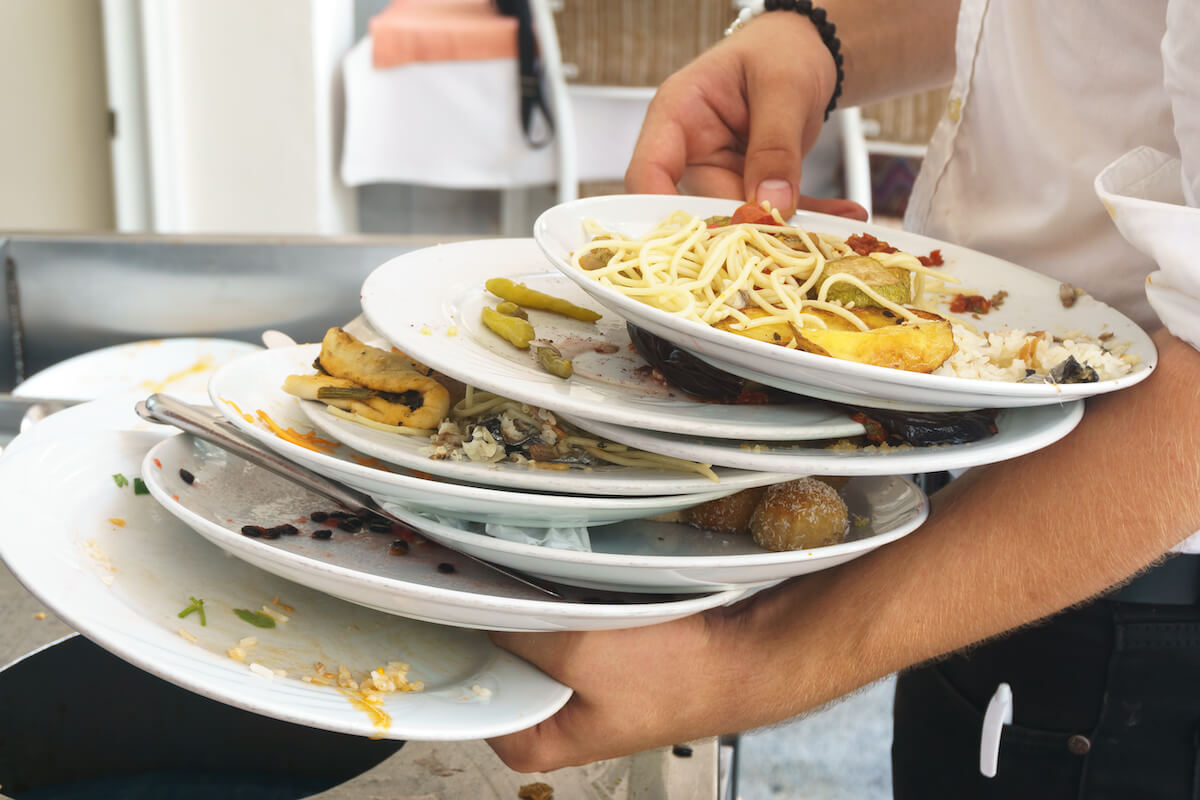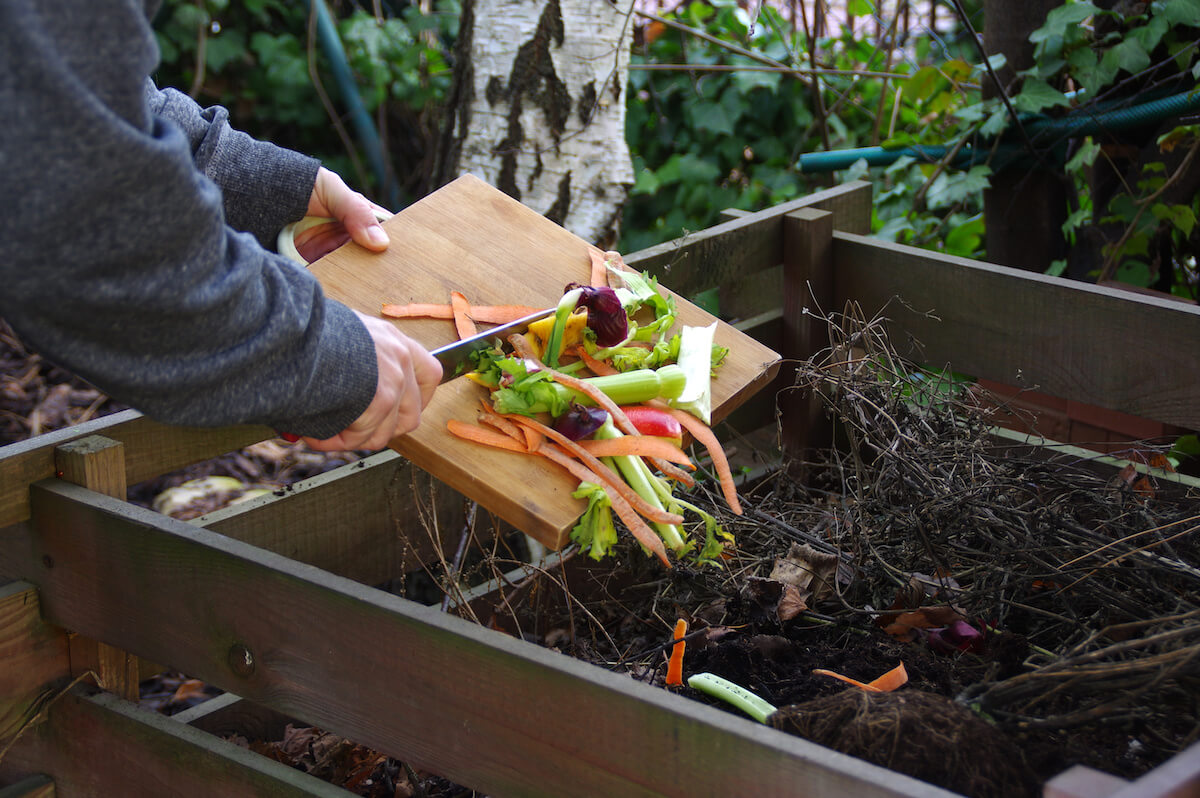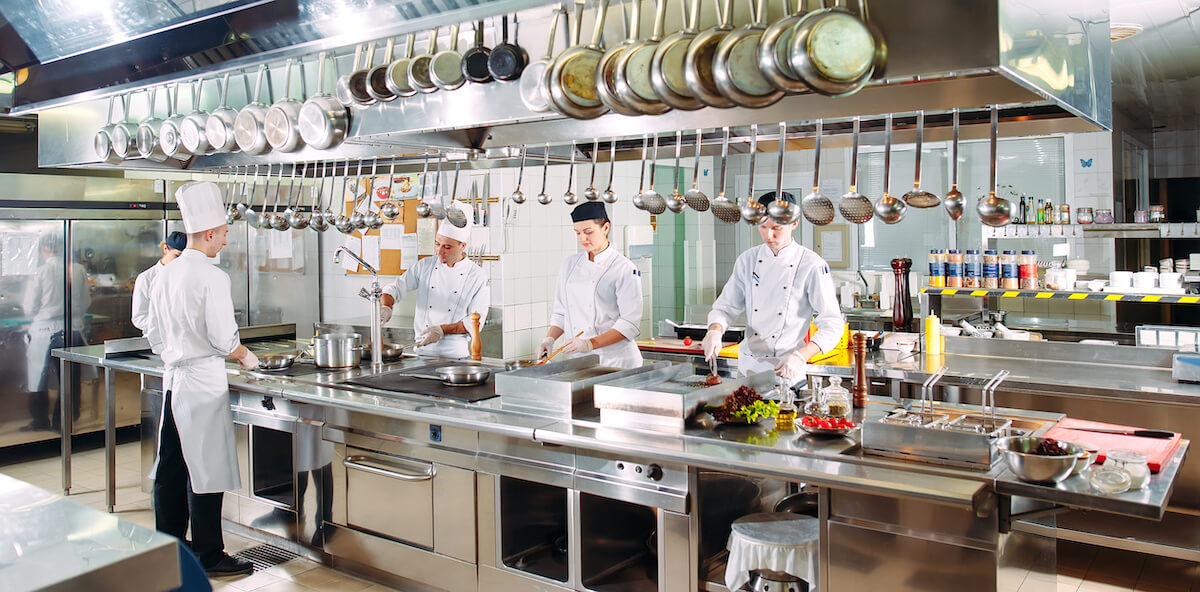Reducing restaurant food waste is good for business and more
Skip the article and turn takeaways into action by scheduling a call with our team.
Food waste is an inevitable part of running a restaurant. Even with a sound sustainability model, restaurateurs cannot avoid spoilage caused by guests who have to abandon a meal suddenly or leave uneaten food when their eyes are bigger than their bellies.
There’s no point forecasting events that are beyond your control in order to achieve zero waste. Instead, restaurant owners can try to get on top of food waste management by implementing systems that reduce food waste.
In this article, we’ll start by explaining why managing restaurant food waste matters. Then, we’ll share some tips for the restaurant industry that support food waste reduction—and possibly create food security and combat climate change too.
Why cutting down on restaurant food waste matters

First and foremost, restaurant food waste eats into profit margins. You’re losing money if you’re buying more food than people are eating. Restaurants suffer food loss due to wrong portion sizes or unpopular menu items, spoilage, and poor restaurant management. Sensible food waste management can uncover the main reasons you throw away edible food and help you make better purchasing decisions.
Minimizing the amount of food wasted puts you on the right path to improving your sustainability, a clear advantage for restaurant operators and your customers. Saving tons of food over the years satisfies not only your bottom line but also any goals you may have toward positively impacting your community and the greater good. Food waste management is an impactful step restaurateurs can take to combat climate change.
There is the added benefit of boosting your brand reputation and building your online following. Sharing stories like the amount of food you save, donations made to food banks, or lowering your greenhouse gas emissions perform well on social media.
Composting

As we mentioned earlier, organic waste is an inevitable by-product of the food service industry. Even the most intrepid eaters leave food scraps. Rather than wondering if your local waste recycling dumps food straight to landfills or incineration, start repurposing your food waste on your home turf by composting those food scraps.
Composting is cheap and simple to set up and will impress forward-thinking diners. You can opt to use the compost you make to help to supplement your own food supply. With time (and space), some vegetarian and vegan restaurants can become self-sufficient. They grow pesticide-free veggies while cutting out the environment-harming supply chain entirely.
Cater to your crowd

You can help eliminate restaurant food waste by analyzing the eating habits of the hungry people in your restaurant. Examine your recent inventory management reports and see what you can learn from your findings. Also, ask your front-of-house staff to see if they notice what people aren‘t eating.
Human consumption habits change over time, so look for changes to your local food scene. For instance, you could try adding more vegetarian menu items in an area that‘s becoming more eco-friendly and plant-based. Vegetables are cheaper and don’t spoil as fast as meat, potentially meaning less food loss overall. You also don’t have to worry about issues such as the environmental impacts of livestock farming and poor animal feed.
Improve your kitchen

Reducing food waste isn’t just about the habits of diners, portion sizes, and meal types. It begins at the food production level. What can be improved within the kitchen by the back-of-house staff and the equipment itself?
Check your fridge temperatures regularly and buy new fridges. If they aren’t keeping food cool enough, do the same with your freezers. Are you using the FIFO (first in, first out) method in your pantries so that your dry food doesn’t go out of date?
Train your staff on appropriate food waste management. Improve waste prevention by helping staff label food with color-coded daily labels rather than relying on grocery store dates that can be hard to locate during the lunchtime rush.
Try talking to the head chef about food preparation and food loss. Food prep helps chefs streamline their operations, but you may not realize the amount of food they are prepping way too far in advance. This can lead to wastage of edible food on a large scale.
Try a waste audit

A waste audit is a type of inventory management that focuses on restaurant food waste. Think of it as a case study of the organic material that‘s not being eaten inside your restaurant.
By monitoring the amount of food waste in your restaurant, you can learn about the foods you waste while taking into account their individual life cycles. You may be able to afford to waste a cheap item with a long shelf life, such as pasta, but expensive meats that are regularly thrown out due to overordering could be an issue worth fixing.
Once you have collated all of your data, you can formulate a waste reduction strategy that gives you a clear indication of the solid waste trends over time. This insight can guide your purchasing in the future as well as your work processes to save not only food, but time and money.
Consider food donation banks

Food waste management isn’t just about improving profit margins and optimizing your business. Focusing on local food recovery as part of your strategy is an ethical choice that can positively impact your community. For instance, when conducting your audit, you may find dry food that’s in date but that you no longer need due to a discontinued menu item. You could donate this excess food to a local food bank or non-profit fighting food deserts.
Also, consider edible food that may no longer be considered restaurant quality but are still safe to eat. Stale bread, for example, is donated regularly by restaurant food chains across the country. You may not turn a profit from this venture, but you’ve prevented pointless waste disposal while helping your neighborhood food system.
Reducing restaurant food waste helps you and your community

Cutting down on restaurant food waste in your place of business isn’t just about widening profit margins and saving money. It can lead to a better social media presence and an improved sense of self-worth, and bring much-needed support to your local community and beyond.
Remember that being eco-friendly starts in your restaurant with a composting program. Try monitoring the eating habits of your diners and stay up to date on local trends for potential menu alterations. Keep on top of the operations of your kitchen and implement a waste audit when necessary. Lastly, remember that the best way to stop food waste is to give it to those who need it by donating to local food banks.
With effective food waste management in place, sales should start to go up. As productivity increases, it’s important to use software to keep operations running smoothly. Yelp Guest Manager is a software solution that supports your team by handling reservations and waitlists, allowing customers to check themselves in, and more.
Restaurants that use Guest Manager paired with Yelp Ads experience 87% more traffic on their Yelp Business Page. Get a demo today to take charge of your FOH and food waste management.